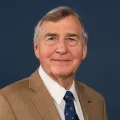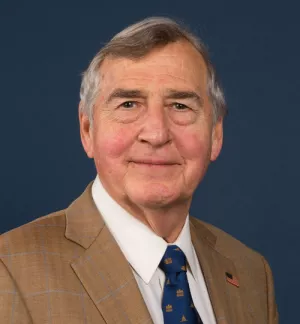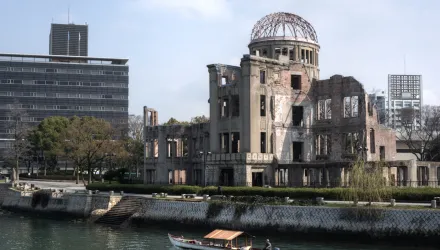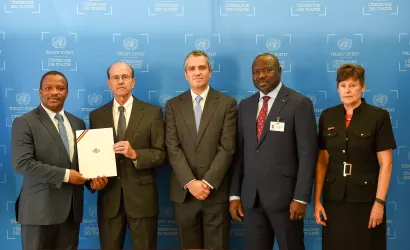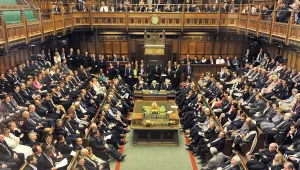The most-quoted line from history’s most dangerous confrontation declares, “We were eyeball to eyeball and the other fellow just blinked.” Now, with the opening of Robert F. Kennedy’s personal papers on the 50th anniversary of the Cuban missile crisis, there can be no doubt that before Soviet leader Nikita Khrushchev blinked, President John F. Kennedy winked.
In the official narrative, Kennedy stood tall, hung tough and stared his opponent down. What this obscures is the critical role that cunning, craft and willingness to compromise played in resolving this crisis.
This narrative has informed — and misinformed — many presidential decisions over the past five decades. In 1964, for example, while choosing to Americanize the war in Vietnam, President Lyndon B. Johnson said, “It required great American firmness and good sense — first in Berlin and later in the Cuban Missile Crisis — to turn back [Khrushchev's] threats and actions without war.”
More recently, in 2002, before sending U.S. troops to Iraq, President George W. Bush argued: “We cannot wait for the final proof — the smoking gun — that could come in the form of a mushroom cloud. As President Kennedy said in October of 1962…’We no longer live in a world…where only the actual firing of weapons represents a sufficient challenge to a nation’s security to constitute maximum peril.’”
This attitude was echoed by, Israeli Prime Minister Benjamin Netanyahu, in his September address to the United Nations. “President Kennedy set a red line during the Cuban Missile Crisis,” Netanyahu said, “That red line also prevented war and helped preserve the peace for decades.”
Robert F. Kennedy’s personal papers include a number of choice pieces that complete the picture of what happened in the decisive phase of those 13 days, when the U.S. naval blockade imposed by Kennedy several days earlier did not appear to be persuading the Soviets to back down.
Fifty years ago Saturday, on October 27, 1962, Kennedy’s advisers gave the president a stark choice: attack the Soviet missiles in Cuba, to prevent them being able to fire against American cities, or acquiesce to the Soviet Union establishing an offensive nuclear missile base in Cuba.
Kennedy calculated that the attack option could trigger the missile launch against the U.S. Alternatively, allowing Khrushchev to succeed in such a reckless adventure would likely embolden him to take similar action against Berlin, which he had announced earlier would be resolved in November. There, Moscow held all the high military cards, and Washington was committed to defending Berlin — even if it meant using nuclear weapons.
So the question arose whether Kennedy could give Khrushchev a way out by accepting his demand that the U.S. withdraw missiles from Turkey. Thanks to secret tapes made by JFK of the meetings, we can be flies on the wall — listening to men debating choices they believed might lead to quick death for hundreds of millions of people.
From the transcript, it is clear that Kennedy was intrigued in the possibility of trading the obsolete U.S. missiles in Turkey for withdrawal of missiles in Cuba. But the overwhelming consensus in the room rejected that option, insisting it would undermine the North Atlantic Treaty Organization alliance, a pillar of Washington’s Cold War strategy.
With his advisers stalemated and exhausted, Kennedy dismissed the group for dinner, asking them to come back for further discussion at 9:00 pm. But he retained six of his closest advisers, including his brother, to shape a further option.
This imaginative combination included a public deal, a private ultimatum and a secret sweetener. Publicly, Washington would pledge not to invade Cuba if the Soviet Union withdrew the missiles. Privately, the U.S. would state as fact that unless Khrushchev announced withdrawal of the missiles within 24 hours, the U.S. would act to eliminate them. And secretly, while asserting that the U.S. would not make any deal if the missiles were withdrawn from Cuba, within six months the missiles in Turkey would be gone.
Robert Kennedy met Soviet Ambassador Anatoly Dobrynin during the dinner break. His papers include a number of drafts in which he explores alternative language for conveying the essence of the president’s message. Careful not to use the word “ultimatum,” he writes: “The purpose was to emphasize danger.” Withdrawal of U.S. missiles from Turkey, he insisted, could “not be a quid pro quo,” but if missiles left Cuba, the U.S. would no longer keep missiles in Turkey.
When Dobrynin summarized this agreement in writing the day after, RFK flatly rejected the piece of paper — asserting that he could “have my word on this and that’s sufficient.”
The gambit paid off. Dobrynin got word to Khrushchev, who accepted the deal publicly on Soviet radio so there could be no mistaking his response. And the world took a breath.
As statesmen today attempt to apply lessons from this iconic event to current challenges, from Iran’s nuclear ambition to the rise of China, understanding the complexities and subtleties of what really happened 50 years ago should remind us that success in high-wire statesmanship requires not only strength, but also savvy.
Allison, Graham. “Cuban Missile Crisis Proved Compromise Is Key.” Reuters, October 29, 2012

